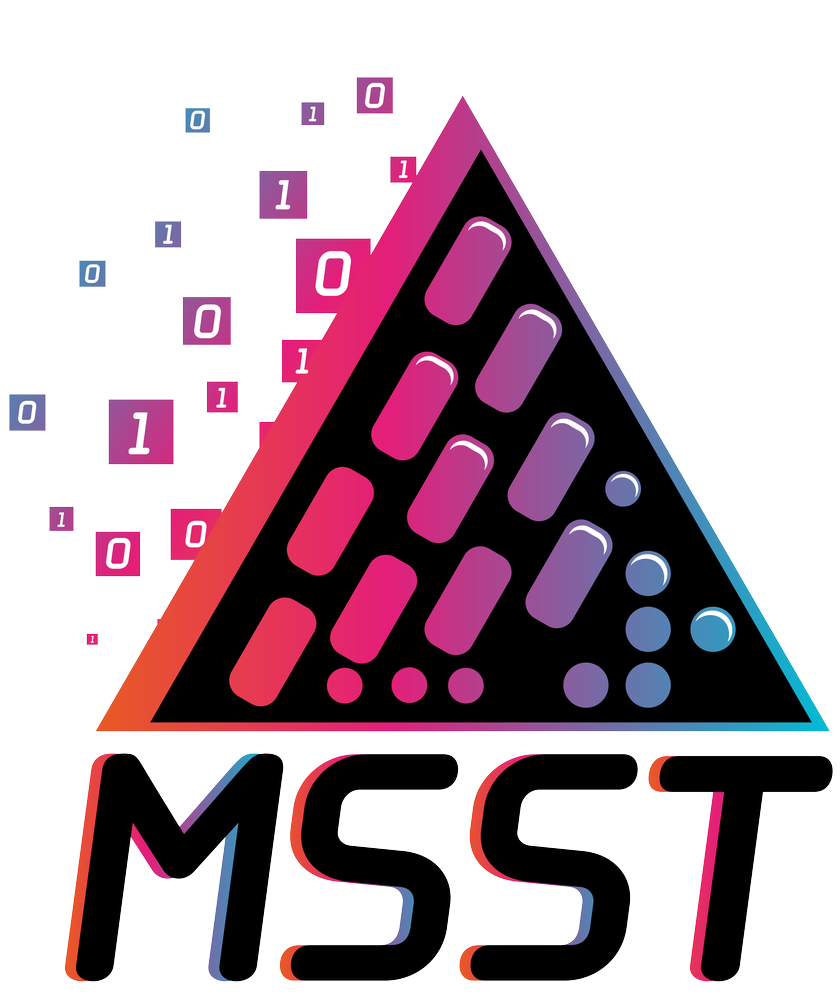MSST 2023 Tutorials—Birds of a Feather, Monday, May 22
7:30 — 8:15 Registration / Breakfast
8:15 — 9:45
Large Scale File/Storage System Indexing with the Grand Unified File Index (Presentation)
Jason Lee, Dominic Manno, Gary Grider, LANL
As filesystems become larger and larger, management of the data stored in these filesystems becomes more and more complex and time consuming. Querying filesystem metadata with standard tools can take hours or even days due to the sheer amount of metadata to be processed and how standard tools go about processing the metadata. Some filesystems provide custom tools that assist in querying their metadata, but there is no unified set of tools to do so. Additionally, such tools are usually reserved for administrators, not users. The Grand Unified File Index (GUFI) solves all these issues and more. GUFI provides a set of highly performant, parallel tools that allow for complex queries to be applied to the metadata of arbitrary filesystems. The GUFI toolset can be used by both administrators as well as users without violating permission semantics. Indices from disconnected filesystems can be combined, allowing for queries across multiple filesystems at once. This session will provide a high-level overview of GUFI as well as a tutorial on using GUFI.
9:45 — 10:00 Break
10:00 — 11:30
Cybersecure File Shares for Unstructured Data Including Multi-Level Security (Presentation)
Jonathan Halstuch, RackTop Systems
Data security is a top priority for organizations who need to protect sensitive information including research, intellectual property, PII, and health records from cyber threats. Organizations need solutions that can provide security, demonstrate continuous compliance, and sustain the operational pace of the organization. Organizations are turning towards a data-centric zero trust approach to secure their data.
Join this tutorial to understand and discuss:
Join this tutorial to understand and discuss:
- A data-centric zero trust approach to network attached storage
- How and why to employ a multi-level security (MLS) solution with demonstration
- Deployment options, performance, and use cases
- Live implementation of a cyberstorage NAS
- Demonstration of the system stopping a live cyberattack
11:30 — 12:30 Lunch
12:30 — 1:15
Scalable, High-Performance S3 Object Storage on Tape Media (Presentation)
Horst Schellong, Point Software and Systems
A software-defined S3 object storage supporting tape as storage class, combines the advantages of tape technology (low energy consumption, high capacity, media disruption, ...) with the functional possibilities of object-oriented data storage (scalability, availability, performance, security, ...). The mini-tutorial explains the architecture and technical benefits of this approach and the resulting use cases.
1:15 — 2:45
OpenZFS New Features Including Direct/IO and Compression/Erasure Offloads (Presentation)
Brian Atkinson, Jason Lee, LANL
Kelly Ursenbach, Eideticom
ZFS is an open source volume manager and file system that provides many built-in data integrity and data transformations features. We will discuss two projects that LANL has been working on, with industry partners, to improve overall ZFS performance with NVMe devices. The first project adds support for O_DIRECT in ZFS, reducing the number of memory copies that occur in the ZFS code path which, in turn, reduces memory bandwidth pressure. The ZFS Interface for Accelerators (Z.I.A.) project offloads CPU- and memory-bandwidth-intensive operations to local and remote computational storage devices.
We seek to get a sense of what operations ZFS users would like to see offloaded to computational storage devices other than the ones that have already been offloaded.
We seek to get a sense of what operations ZFS users would like to see offloaded to computational storage devices other than the ones that have already been offloaded.
2:45 — 3:00 Break
3:00 — 4:30
Standards-Based Parallel Global File Systems and Automated Data Orchestration with NFS (Presentation)
David Flynn, Trond Mykelbust, Douglas Fallstrom, Hammerspace
High-performance computing applications, web-scale storage systems, and modern enterprises increasingly have the need for a data architecture that will unify at the edge, and in data centers, and clouds. These organizations with massive-scale data requirements need the performance of a parallel file system coupled with a standards-based solution that will be easy to deploy on machines with diverse security and build environments.
Join this tutorial to discuss:
Join this tutorial to discuss:
- How to unify data created in different clusters and locations into a single namespace, and place locally to applications and compute for processing/AI.
- Latest technologies available to deliver parallel file system performance from data sets stored in a hybrid cloud environment.
- The latest in standards-based technologies available for data orchestration and storage at mass scale.
MSST 2023 Invited Track, Tuesday, May 23
7:30 — 8:30 Registration / Breakfast
8:30 — 9:30 CXL
CXL in Data Storage Applications (Presentation)
Siamak Tavallaei
Rethinking Byte-Accessibility of SSDs from a CXL-Attached Memory and Storage System (Presentation)
John Kim, Sk Hynix
9:30 — 10:15 Lustre/ Large Site Report
Lustre Metadata Writeback Caching (Presentation)
Oleg Drokin, Whamcloud
Storage and Data Management for Science at the Large Hadron Collider at CERN (Presentation)
Dr. Andreas-Joachim Peters, CERN IT Storage Group
10:15 — 10:45 Break
10:45 — 12:00 Storage Class Memory
Samsung’s CXL-Era Memory Expansion Devices with NAND Flash Media (Presentation)
Rekha Pitchumani, Samsung
Post Optane: What comes next for Storage Class Memory
Jongryool Kim, SK Hynix
Advanced Storage and Memory Hierarchy in AI and HPC
with DAOS Storage (Presentation)
Andrey Kudryavtsev, Intel
12:00 — 1:00 Lunch
1:00 — 3:00 Computational Storage
Accelerated Disks and Flashes: LANL's early experience in Speeding Up
Analytics Workloads
Using Smart Devices (Presentation)
Using Smart Devices (Presentation)
Qing Zheng, LANL
NVME/Computational Storage Standards Update (Presentation)
Scott Shadley, Solidigm
Computational Storage Solutions Over Fabrics for ZFS (Presentation)
Kelly Ursenbach, Eideticom
Current and future SSD architectures for Computational Storage (Presentation)
Ramdas Kachare, Samsung
3:00 — 3:30 Break
3:30 — 5:00 Future Cloud
Hyperscale Perspectives on Storage (Presentation)
Ross Stenfort, Meta
Fifty Shades of S3: Navigating the Gray Areas of API Implementation (Presentation)
Gregory Touretsky, Seagate
The Case for NFS-eSSDs (Presentation)
David Flynn, Hammerspace
MSST 2023 Invited Track, Wednesday, May 24
7:30 — 8:30 Registration / Breakfast
8:30 — 9:30 Keynote
Data Impact on the Environment (Presentation)
Erik Riedel, Carnegie Mellon
9:30 — 10:00 Break
10:00 — 12:00 Inexpensive Large Capacity Storage
Some Questions Relating to Future Archive and Backup Systems (Presentation)
Bruce Montague, Veritas
Magnetic Tape Industry Roadmaps (Presentation)
Matt Ninesling, Spectra
Reducing Costs While Improving Sustainability with Modern Tape Storage (Presentation)
Brad Johns, Brad Johns Consulting
Experiences in Long Term Storage
Meghan McClelland, Versity
12:00 — 1:00 Lunch
1:00 — 3:00 Failure at Scale
What Ten Years of Drive Stats Data Can Tell Us (Presentation)
Andy Klein, Backblaze
Analysis and Design Considerations of Multi-level Erasure Coding in
Hierarchical Data Centers (Presentation)
Meng Wang, University of Chicago
MarFS as a Multi-Level Erasure Archive (Presentation)
Garrett Ransom, LANL
Improving Data Reliability in Exascale Storage Clusters
Saurabh Kadekodi, Google
3:00 — 3:30 Wrap-Up
MSST 2023 Organizers |
|
| Conference Chair | Prof. Ahmed Amer, SCU |
| Program Committee | Gary Grider, John Bent, Alex Parga |
| Industry Co-Chairs | Alex Parga, Adam Manzanares |
| Registration Chair | Prof. Shiva Jahangiri, SCU |
| Page Updated January 12, 2024 |


